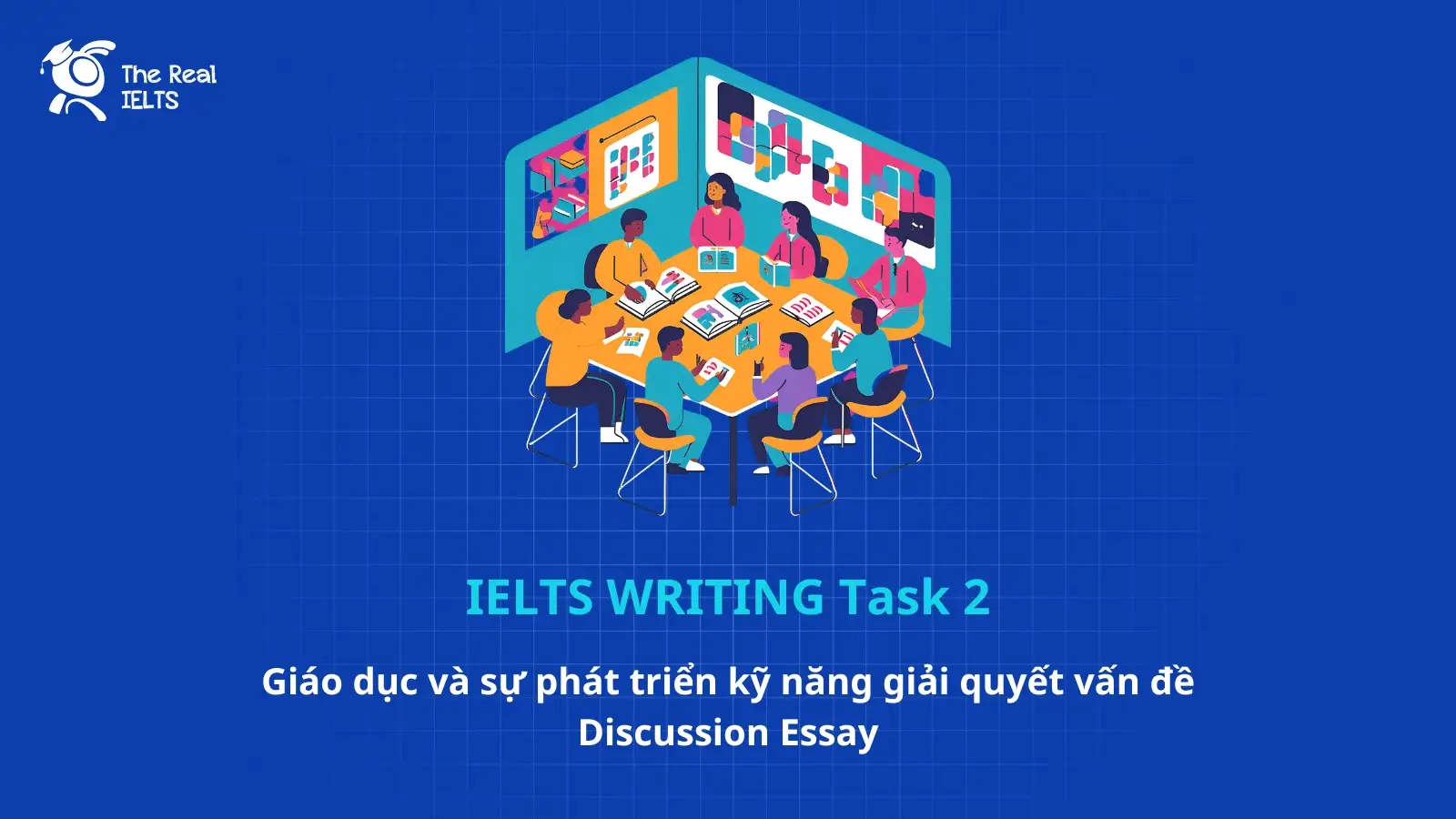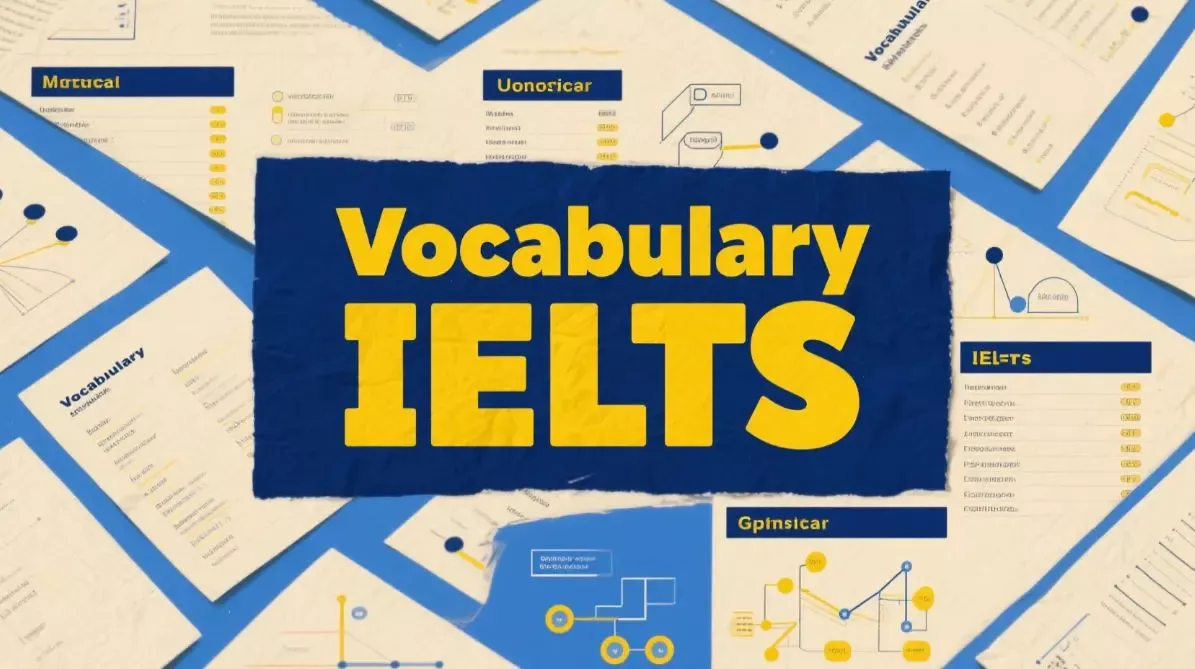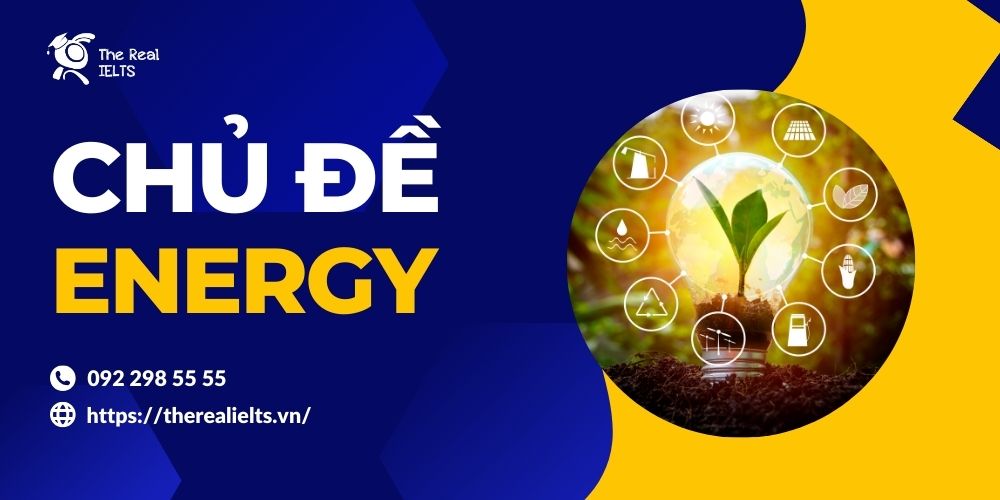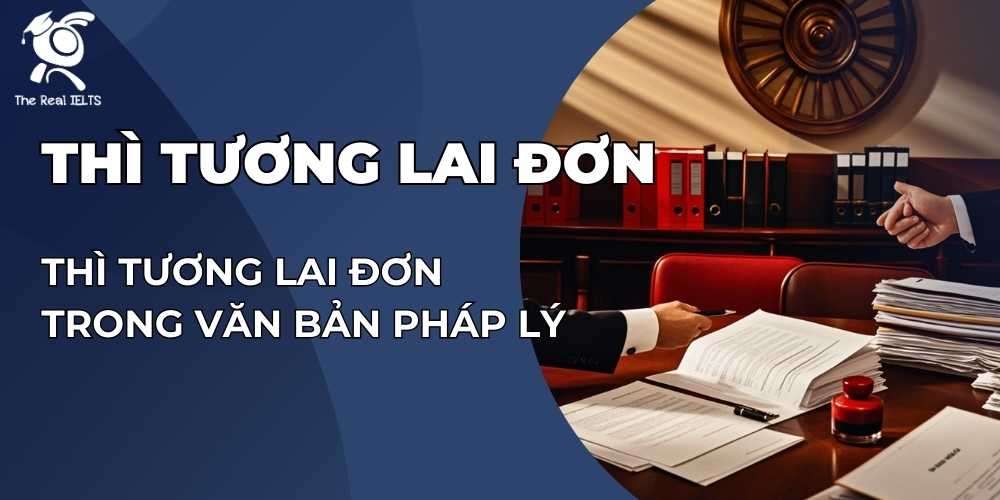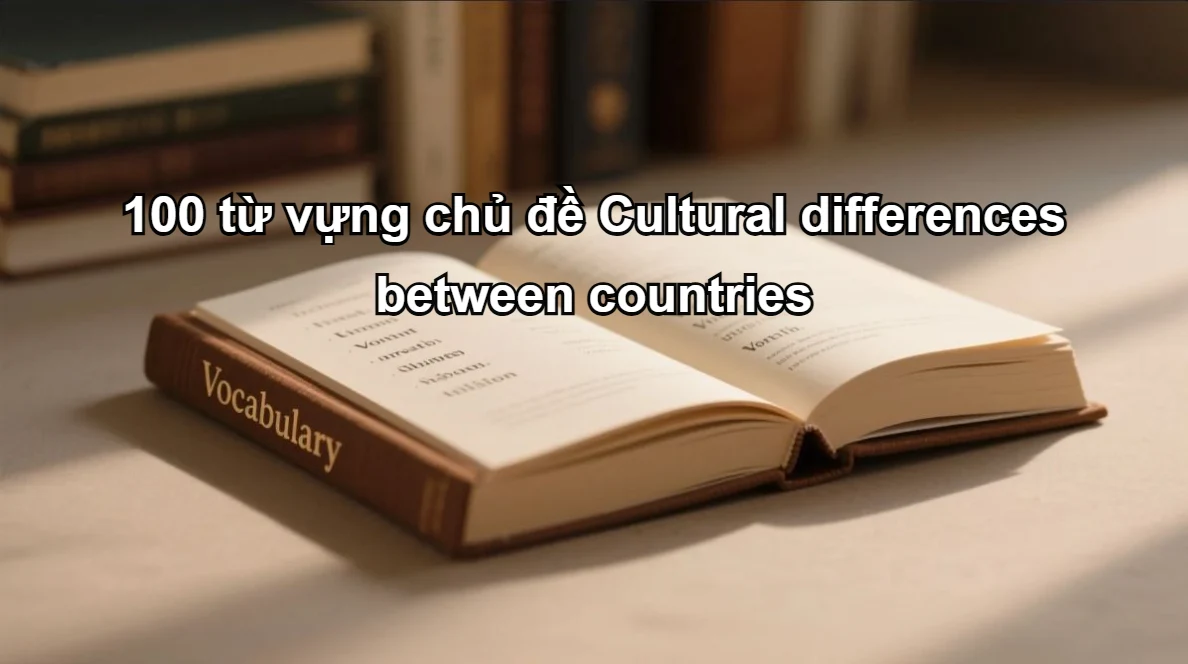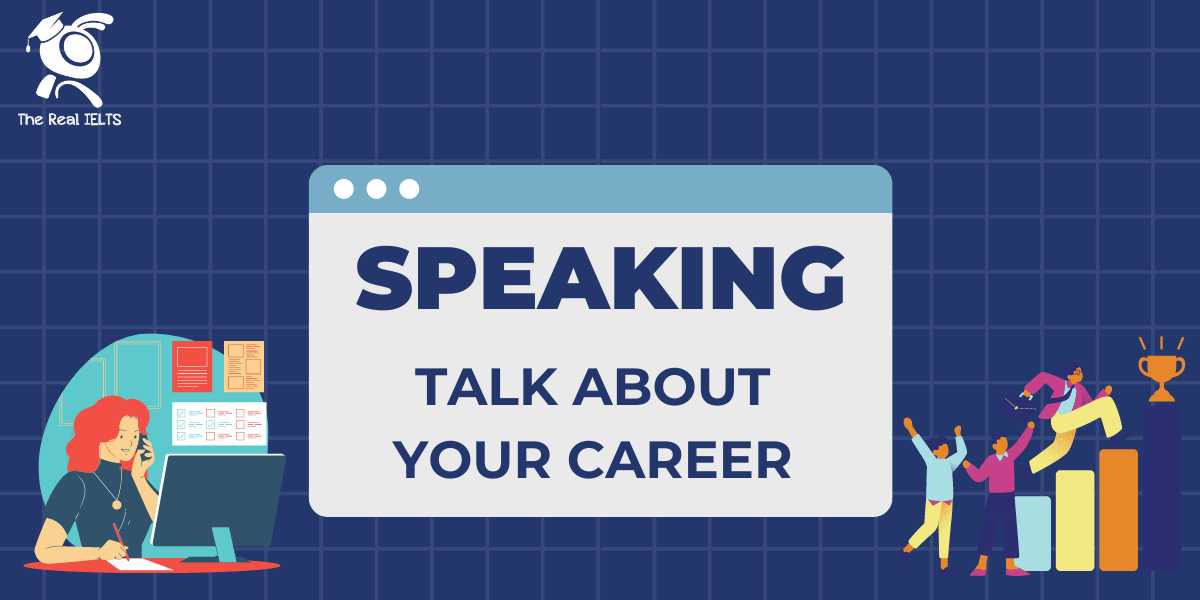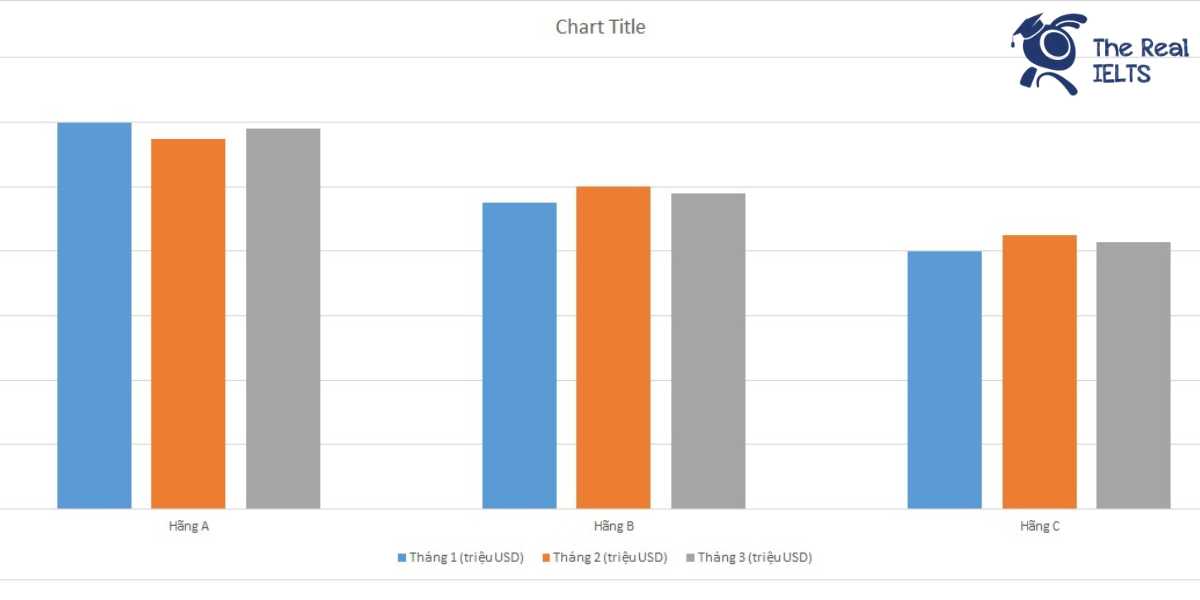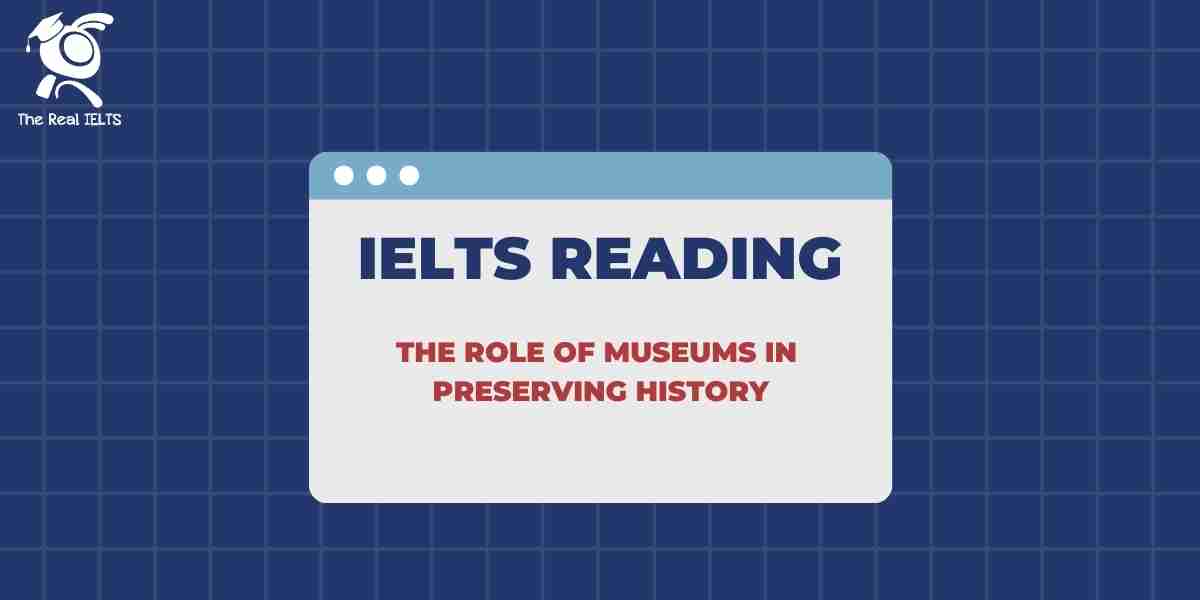IELTS Writing Task 2 thường đề cập đến vai trò của giáo dục trong việc phát triển kỹ năng giải quyết vấn đề. Một số người cho rằng giáo dục truyền thống giúp học sinh rèn luyện tư duy logic, trong khi người khác tin rằng kỹ năng này đến từ trải nghiệm thực tế. Bài viết sẽ thảo luận hai quan điểm này.
Đọc thêm: IELTS Writing Task 2: Giáo dục và sự phát triển kỹ năng giải quyết vấn đề – Agree or Disagree.
Đề bài IELTS Writing Task 2: Giáo dục và sự phát triển kỹ năng giải quyết vấn đề – Discussion Essay
Some people believe that formal education is the best way to develop problem-solving skills, while others argue that real-world experiences are more effective. Discuss both views and give your own opinion.
Ví dụ 1
Introduction
The development of problem-solving skills is a crucial aspect of personal and professional growth, and there are differing opinions on the most effective way to acquire these abilities. Some people argue that formal education is the best way to develop problem-solving skills, while others believe that real-world experiences are more beneficial. This essay will discuss both perspectives before presenting my own view on the matter.
Body Paragraph 1: The Argument for Formal Education
Supporters of formal education argue that it provides a structured environment where students can develop problem-solving skills systematically. In the classroom, students are introduced to various subjects that challenge their analytical thinking. For example, mathematics teaches logical problem-solving through equations and formulas, while subjects like science encourage experimentation and hypothesis testing. This structured learning approach equips students with the fundamental skills needed to solve complex problems.
Furthermore, formal education offers access to expert teachers and a wealth of resources that provide students with the necessary tools to tackle problems. Educators are trained to guide students in developing critical thinking and problem-solving abilities, ensuring that they have the right support to build these skills in a focused manner.
Body Paragraph 2: The Argument for Real-World Experiences
On the other hand, many argue that real-world experiences offer a more practical and effective approach to developing problem-solving skills. In everyday life, individuals often face unpredictable challenges that require immediate, creative solutions. Whether it’s managing a project at work, dealing with personal conflicts, or handling financial issues, these real-world problems demand adaptability and critical thinking that is not always taught in classrooms.
Moreover, real-world experiences allow individuals to apply theoretical knowledge in practical settings. This hands-on learning can be more impactful than theoretical education because it forces individuals to navigate real-life consequences and uncertainties, which enhances their problem-solving abilities. For example, someone working in a fast-paced job may learn to solve problems on the spot, develop time management strategies, and adapt to changing situations in ways that a classroom setting might not provide.
Body Paragraph 3: My Opinion
While I acknowledge the value of real-world experiences, I believe that formal education plays a more essential role in developing problem-solving skills. Formal education provides a strong foundation in critical thinking and equips individuals with the tools necessary to tackle a wide range of problems. It also offers a more systematic and comprehensive approach to problem-solving, which is crucial for tackling complex issues in professional settings.
However, I do agree that real-world experiences complement formal education by providing opportunities for individuals to apply their learned skills in practical situations. A balanced combination of both formal education and real-world experiences is the most effective way to develop well-rounded problem-solving abilities.
Conclusion
In conclusion, while both formal education and real-world experiences contribute to the development of problem-solving skills, I believe that formal education provides a stronger foundation for learning these skills in a structured and systematic manner. That said, the integration of real-world experiences enhances these skills and ensures that individuals are well-equipped to apply their problem-solving abilities in diverse and dynamic situations.
Ví dụ 2
In today’s rapidly changing world, problem-solving skills are crucial for both personal and professional success. Some argue that formal education is the most effective means of cultivating these skills, while others believe that real-world experiences offer a more practical approach. This essay will discuss both perspectives before presenting my own view that a combination of both is ideal.
On the one hand, formal education provides a structured and systematic way to develop problem-solving abilities. Schools and universities expose students to a wide range of subjects that encourage analytical thinking, such as mathematics, science, and philosophy. Additionally, standardized curricula often include case studies, logical reasoning exercises, and structured debates that help students tackle complex issues in a controlled environment. Furthermore, educators serve as mentors, guiding students to think critically and systematically approach problems. For instance, in business schools, students are trained to analyze market trends and devise strategic solutions, equipping them with valuable problem-solving skills.
On the other hand, real-world experiences offer a hands-on approach to problem-solving that formal education often lacks. In everyday life and professional settings, individuals encounter unpredictable challenges that require quick thinking and adaptability. Unlike academic scenarios, real-world problems often do not have predefined solutions, forcing individuals to rely on creativity, resilience, and resourcefulness. For example, entrepreneurs frequently face unforeseen financial setbacks and must develop innovative solutions to keep their businesses afloat. Similarly, professionals working in high-pressure environments, such as emergency responders, rely on real-time decision-making rather than theoretical knowledge.
In my opinion, a balanced approach that combines both formal education and real-world experiences is the most effective way to develop problem-solving skills. While education lays the foundation by teaching fundamental principles and structured thinking, real-world exposure enhances adaptability and creativity. For example, internship programs, apprenticeships, and project-based learning bridges the gap between theory and practice, allowing individuals to apply academic knowledge to real-life situations.
In conclusion, while formal education provides essential theoretical frameworks and structured training, real-world experiences cultivate adaptability and practical thinking. A combination of both approaches ensures individuals are well-equipped to tackle challenges in an increasingly complex world.
Ví dụ 3
Introduction
Problem-solving is a crucial skill that plays a significant role in both personal and professional life. While some believe that formal education is the best way to cultivate this skill, others argue that real-world experiences offer a more effective approach. This essay will examine both perspectives before presenting my own viewpoint.
Formal Education and Problem-Solving
Proponents of formal education argue that structured learning provides a solid foundation for developing problem-solving skills. Schools and universities teach logical thinking, analytical reasoning, and systematic approaches to tackling problems. Subjects like mathematics, science, and philosophy encourage students to break down complex issues into manageable parts and apply theoretical knowledge to find solutions. Moreover, formal education often incorporates case studies, simulations, and collaborative projects, which help students practice decision-making in controlled environments.
However, one drawback of this approach is that academic settings often present problems in a structured manner with predefined solutions. This can limit students’ ability to deal with unpredictable, real-world challenges that require adaptability and creativity.
Real-World Experience and Problem-Solving
On the other hand, real-world experiences expose individuals to practical challenges that demand critical thinking and quick decision-making. In professional and personal settings, people encounter problems that require flexibility, innovation, and interpersonal skills—qualities that are sometimes overlooked in formal education. For example, entrepreneurs, technicians, and professionals in various fields often develop problem-solving abilities through trial and error, learning from failures and adapting strategies accordingly.
Furthermore, real-world situations often involve emotional intelligence, teamwork, and negotiation—skills that cannot always be taught effectively in a classroom. However, relying solely on experience can also be inefficient, as learning through mistakes can be time-consuming and costly. Without a foundational understanding of theories and principles, individuals may struggle to approach problems systematically.
My Opinion
In my view, the most effective way to develop problem-solving skills is a combination of both formal education and real-world experience. Education provides essential knowledge and frameworks for approaching problems logically, while real-world experience helps refine these skills through practical application. For instance, internships, apprenticeships, and hands-on projects can bridge the gap between theoretical learning and practical problem-solving, ensuring a well-rounded development of this essential skill.
Conclusion
Both formal education and real-world experience play vital roles in shaping problem-solving abilities. While education offers structured learning and foundational knowledge, real-world exposure enhances adaptability and creativity. A balanced approach that integrates both methods is the most effective way to cultivate strong problem-solving skills.
Ví dụ 4
Problem-solving is a crucial skill in both personal and professional life. Some believe that formal education is the best way to develop this skill, while others argue that real-world experiences are more effective. This essay will discuss both perspectives and provide a personal opinion on the matter.
The Role of Formal Education
Formal education plays a significant role in shaping an individual’s problem-solving abilities. Schools and universities provide a structured environment where students learn logical reasoning, analytical thinking, and theoretical problem-solving techniques. Subjects such as mathematics, science, and philosophy train individuals to break down complex problems into manageable parts and apply systematic solutions. Additionally, academic settings often encourage teamwork, debate, and critical discussions, which further enhance problem-solving skills.
Another advantage of formal education is access to expert guidance. Teachers and professors, who are specialists in their fields, provide insights that may take years to acquire through real-world experiences. Furthermore, education exposes students to a variety of simulated problems, allowing them to develop problem-solving strategies in a controlled setting before encountering real-life challenges.
The Importance of Real-World Experience
On the other hand, many argue that real-world experiences provide more effective problem-solving skills. Unlike academic environments, real-life situations often involve unpredictable challenges, requiring individuals to think on their feet and adapt quickly. For example, entrepreneurs, medical professionals, and engineers often face situations where theoretical knowledge alone is insufficient—practical decision-making and experience-based intuition become essential.
Moreover, real-world experiences cultivate resilience and creativity. When individuals encounter failures, they learn from mistakes and develop alternative solutions. This trial-and-error process is crucial for innovation and success in various fields. Unlike formal education, which often follows a structured curriculum, real-world experiences expose individuals to diverse and dynamic problems that require unconventional solutions.
Personal Opinion
While both formal education and real-world experience are valuable, I believe a combination of both is the most effective way to develop problem-solving skills. Education provides a strong foundation of knowledge and logical thinking, while real-world experience enhances adaptability and practical decision-making. For instance, professionals who have both academic qualifications and hands-on experience tend to be more competent in solving complex problems.
In conclusion, formal education equips individuals with theoretical tools and structured problem-solving methods, whereas real-world experiences foster adaptability and practical skills. To develop strong problem-solving abilities, it is ideal to integrate both approaches, ensuring a balance between knowledge and real-life application.
Ví dụ 5
Formal Education vs. Real-World Experience in Developing Problem-Solving Skills
Problem-solving skills are crucial in both personal and professional life. While some argue that formal education provides the best foundation for developing these skills, others believe that real-world experience is more effective. This essay will discuss both perspectives and present my opinion on the matter.
On the one hand, formal education is structured to develop critical thinking and analytical abilities. Schools and universities offer courses that train students in logical reasoning, research methodologies, and systematic approaches to problem-solving. For example, subjects such as mathematics, science, and philosophy encourage students to analyze problems methodically and apply theoretical knowledge to find solutions. Additionally, formal education often includes collaborative projects, case studies, and problem-based learning exercises that simulate real-world challenges, allowing students to refine their skills in a controlled environment.
Moreover, formal education provides a broad knowledge base that helps individuals tackle various challenges. Academic institutions expose students to diverse disciplines, helping them understand different perspectives and approaches to problem-solving. Degrees and certifications also serve as credentials that can enhance career prospects, giving individuals an advantage in competitive job markets.
On the other hand, real-world experience is often regarded as a more effective way to develop problem-solving skills because it exposes individuals to unpredictable and complex situations. Unlike academic settings, real-world problems rarely have clear-cut solutions, requiring individuals to think creatively, adapt quickly, and make decisions under pressure. For instance, entrepreneurs, engineers, and medical professionals often face unique challenges that demand innovative thinking and practical solutions, which can only be learned through hands-on experience.
Additionally, real-world experience fosters resilience and adaptability. Individuals who learn by doing are more likely to develop confidence and the ability to handle failures constructively. In contrast, formal education sometimes focuses more on theoretical knowledge rather than practical application, which may leave graduates unprepared for the complexities of real-world problem-solving.
In my opinion, a combination of both formal education and real-world experience is the most effective approach to developing problem-solving skills. While formal education lays the foundation by teaching critical thinking and theoretical frameworks, real-world experience provides the necessary practical application and adaptability. Therefore, integrating experiential learning opportunities within formal education—such as internships, apprenticeships, and project-based assignments—can offer individuals the best of both worlds.
In conclusion, both formal education and real-world experience play significant roles in developing problem-solving skills. Formal education provides theoretical knowledge and structured training, while real-world experience offers practical insights and adaptability. A balanced approach that incorporates elements of both can produce well-rounded individuals capable of effectively addressing challenges in various aspects of life.
Ví dụ 6
Introduction
The ability to solve problems effectively is a crucial skill in both academic and professional settings. While some argue that formal education provides the best foundation for developing problem-solving skills, others believe that real-world experiences are more practical and impactful. This essay will discuss both perspectives before presenting my own view that a combination of both is the most effective approach.
Body Paragraph 1: The Role of Formal Education
Proponents of formal education argue that it provides a structured environment where students learn systematic approaches to problem-solving. Schools and universities offer courses in mathematics, science, and critical thinking, which equip learners with analytical skills and logical reasoning. Additionally, formal education fosters discipline, research skills, and exposure to diverse problem-solving methodologies. For instance, subjects like mathematics and computer science train students to break down complex problems into smaller, manageable parts—a crucial ability in various fields. Furthermore, academic settings encourage collaboration, enabling students to refine their problem-solving abilities through discussions and teamwork.
Body Paragraph 2: The Importance of Real-World Experiences
On the other hand, real-world experiences expose individuals to unpredictable challenges that require immediate and practical solutions. Unlike classroom settings, where problems are often theoretical, real-life situations demand adaptability and creativity. Entrepreneurs, for example, often develop their problem-solving skills by facing financial setbacks, market competition, and operational difficulties. Similarly, professionals in fields such as medicine or engineering must quickly assess and resolve issues in high-pressure situations. Supporters of this view argue that hands-on experience builds resilience and practical intelligence, which cannot always be taught in a classroom.
My Opinion: A Balanced Approach
In my opinion, both formal education and real-world experiences are essential for developing problem-solving skills. Education provides a solid theoretical foundation and teaches structured thinking, while real-world experiences refine these skills through practical application. For example, medical students who study theories in university must later apply their knowledge in clinical settings to solve real patient cases. Therefore, the most effective way to develop strong problem-solving abilities is to integrate both academic learning and hands-on experiences.
Conclusion
In conclusion, while formal education offers structured methodologies for problem-solving, real-world experiences provide practical applications that enhance adaptability. A combination of both is ideal, as theoretical knowledge lays the groundwork for practical problem-solving in real-life scenarios. Hence, individuals should seek a balance between academic learning and hands-on experience to develop well-rounded problem-solving skills.
Ví dụ 7
Education plays a crucial role in shaping an individual’s cognitive abilities, particularly problem-solving skills. While some argue that formal education provides the best foundation for developing these skills, others believe that real-world experiences offer a more practical and effective approach. This essay will examine both perspectives before presenting my own view.
On the one hand, formal education provides a structured environment where students systematically develop problem-solving skills. Schools and universities teach analytical thinking through subjects such as mathematics, science, and philosophy, encouraging students to approach problems methodically. Additionally, academic settings often expose learners to hypothetical scenarios that require logical reasoning and critical analysis. For example, engineering students solve complex equations and design challenges, which refine their ability to think critically. Furthermore, education fosters collaboration, as students often work in groups to tackle case studies, simulations, or research projects, all of which enhance their problem-solving capabilities.
On the other hand, real-world experiences provide practical, hands-on opportunities to develop problem-solving skills in dynamic and unpredictable situations. Unlike classroom learning, which often involves controlled scenarios, real life presents unexpected challenges that demand adaptability and creativity. Entrepreneurs, for instance, frequently encounter financial setbacks, market fluctuations, and staffing issues, forcing them to devise innovative solutions under pressure. Similarly, professionals in fields like healthcare and emergency response must make quick decisions based on real-time data, which hones their ability to solve problems efficiently. Real-world learning also fosters resilience, as individuals learn from failures and adjust their strategies accordingly.
In my opinion, while formal education lays a strong theoretical foundation, real-world experiences are ultimately more effective in honing problem-solving skills. The unpredictability of real-life situations requires individuals to apply their knowledge in diverse contexts, pushing them to think on their feet. While academic learning provides valuable frameworks, it is through practical experience that these frameworks are truly tested and refined. Therefore, the most effective approach is a combination of both—leveraging the structured knowledge gained in school while continuously applying it in real-life situations.
Ví dụ 8
Some people believe that formal education is the best way to develop problem-solving skills, while others argue that real-world experiences are more effective. This essay will discuss both perspectives before presenting my own view.
On the one hand, formal education provides a structured approach to problem-solving. Schools and universities expose students to a variety of theoretical frameworks, logical reasoning methods, and analytical techniques. For instance, subjects like mathematics and science teach individuals to approach problems systematically, breaking them down into smaller components. Furthermore, academic institutions encourage critical thinking through debates, case studies, and research projects, all of which refine problem-solving abilities in a controlled environment. Additionally, educators act as mentors, guiding students toward effective strategies rather than allowing them to struggle aimlessly.
On the other hand, real-world experiences offer hands-on learning that formal education often lacks. In practical situations, individuals face unpredictable challenges that require adaptability and creativity—skills that cannot always be taught in a classroom. For example, entrepreneurs and business leaders often develop their problem-solving abilities by navigating financial difficulties, market competition, and unexpected crises. Similarly, professionals in fields like medicine or engineering must apply their knowledge to real-life situations, where quick thinking and resourcefulness are essential. Real-world experience also teaches resilience, as individuals must learn from failures and adjust their approaches accordingly.
In my opinion, while formal education lays a strong foundation for problem-solving by teaching structured approaches, real-world experience is ultimately more effective. The unpredictability of life requires individuals to think on their feet and develop innovative solutions that textbooks cannot always provide. Therefore, a combination of both—learning theoretical principles in school and applying them in real-life situations—would be the ideal approach to developing strong problem-solving skills.
Ví dụ 9
Problem-solving skills are essential in both personal and professional life. While some argue that formal education is the best way to cultivate these skills, others believe that real-world experiences are more effective. This essay will discuss both perspectives before presenting my own viewpoint.
On the one hand, formal education provides a structured environment for developing problem-solving abilities. Schools and universities equip students with theoretical knowledge, analytical techniques, and systematic approaches to tackling challenges. Subjects such as mathematics, science, and even philosophy train individuals to think critically and logically. Moreover, structured problem-solving activities, such as case studies, simulations, and academic projects, expose students to complex situations in a controlled setting. Additionally, education fosters cognitive discipline, teaching individuals how to break down problems, assess solutions, and implement effective strategies.
On the other hand, real-world experiences often present unpredictable challenges that cannot be fully simulated in a classroom. Many skills, such as adaptability, resilience, and quick decision-making, are best learned through direct exposure to real-life situations. For instance, entrepreneurs, professionals, and skilled workers frequently develop problem-solving abilities through hands-on experience, trial and error, and learning from failure. Unlike formal education, real-world scenarios require immediate and practical solutions, fostering creativity and innovation. Furthermore, social interactions, workplace dynamics, and cultural contexts add layers of complexity that textbooks and lectures may not fully capture.
In my opinion, while formal education provides a solid foundation in logical reasoning and structured problem-solving, real-world experiences are more effective in honing these skills in practical settings. Theoretical knowledge alone is insufficient without real-world application, and individuals often learn best when faced with real consequences. Thus, a combination of both approaches—formal education to build fundamental skills and real-world experience to refine and apply them—is the most effective way to develop strong problem-solving abilities.


